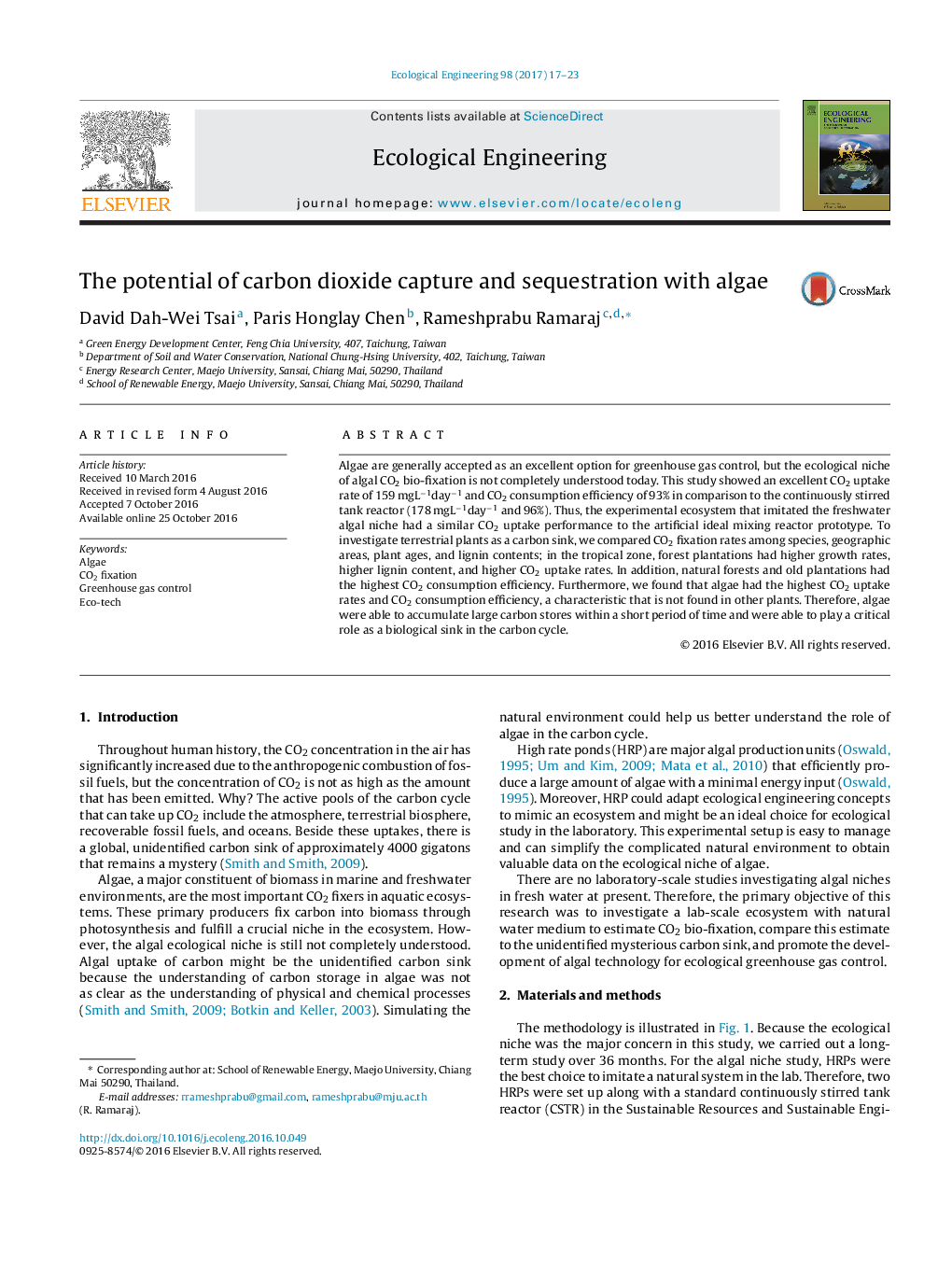| Article ID | Journal | Published Year | Pages | File Type |
|---|---|---|---|---|
| 5744049 | Ecological Engineering | 2017 | 7 Pages |
â¢Excellent CO2 consumption efficiency in the lab-scale nature system.â¢Further understanding of the algae niche of CO2 bio-fixation in nature.â¢Illustrate the potential role of algae in the global carbon cycle.
Algae are generally accepted as an excellent option for greenhouse gas control, but the ecological niche of algal CO2 bio-fixation is not completely understood today. This study showed an excellent CO2 uptake rate of 159Â mgLâ1dayâ1 and CO2 consumption efficiency of 93% in comparison to the continuously stirred tank reactor (178Â mgLâ1dayâ1 and 96%). Thus, the experimental ecosystem that imitated the freshwater algal niche had a similar CO2 uptake performance to the artificial ideal mixing reactor prototype. To investigate terrestrial plants as a carbon sink, we compared CO2 fixation rates among species, geographic areas, plant ages, and lignin contents; in the tropical zone, forest plantations had higher growth rates, higher lignin content, and higher CO2 uptake rates. In addition, natural forests and old plantations had the highest CO2 consumption efficiency. Furthermore, we found that algae had the highest CO2 uptake rates and CO2 consumption efficiency, a characteristic that is not found in other plants. Therefore, algae were able to accumulate large carbon stores within a short period of time and were able to play a critical role as a biological sink in the carbon cycle.
